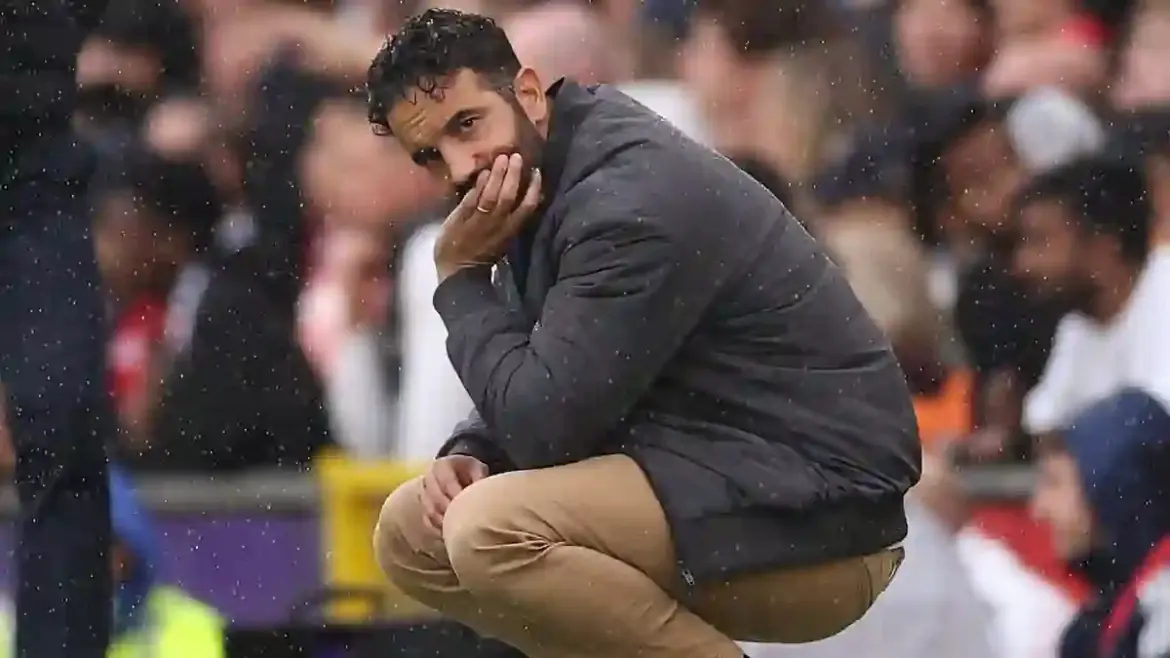Manchester United’s recent performances have reignited an old debate: do the club’s problems go deeper than tactics and transfers?
According to football journalist Ian Ladyman, new boss Ruben Amorim faces the same psychological challenge that has haunted United since Sir Alex Ferguson left.
A Strong Summer, But Familiar Flaws
United had a promising preseason and spent big this summer, bringing in Matheus Cunha, Bryan Mbeumo, and Benjamin Sesko in a £207 million spree. Yet the optimism didn’t last long.
Poor league results against Fulham and Arsenal, combined with a shock Carabao Cup exit to Grimsby Town, have already raised doubts.
Ladyman told the Whistleblowers podcast that while Amorim has fresh ideas, he hasn’t solved United’s “emotional fragility.”
He explained that no matter how well United start games, once the opposition pushes back, the squad often crumbles.
A Weakness That’s Hard to Shake
Ladyman gave the Burnley match as an example: United dominated the first half but failed to kill the game off.
When Burnley equalised, confidence collapsed. “It feels like I’ve been watching this weakness for so long,” he admitted.
Whether it’s a lack of mental strength or simply too few leaders on the pitch, Ladyman argued, the problem hasn’t been fixed by any manager since Ferguson.
The Missing Spine of the Team
Former referee and podcast co-host Mark Clattenburg agreed, saying the root of the issue lies in United’s lack of a solid backbone.
He pointed to lingering doubts about new goalkeeper Senne Lammens, brought in from Royal Antwerp, and argued that defenders don’t trust him yet.
Clattenburg also lamented the midfield, noting there’s no longer a Roy Keane or Paul Scholes figure to dominate games.
“Old Trafford used to be a fortress,” he said. “Now there’s a softness in the middle of the park.”
Who Could Fix the Midfield?
United correspondent Nathan Salt suggested Newcastle’s Bruno Guimaraes as the type of player who could change the culture at Old Trafford.
His energy, drive, and leadership, Salt argued, are exactly what United’s current midfield lacks.
Without that mentality, he warned, Amorim could find himself fighting the same battles as his predecessors.
The Road Ahead for Amorim
While United’s transfer window strengthened the attack, questions remain about balance, leadership, and resilience.
Amorim’s real test might not be in tactics or spending but in reshaping the mentality of a squad that has too often folded under pressure.
Until that psychological weakness is addressed, Ladyman and Clattenburg believe inconsistency will continue to haunt the team.
